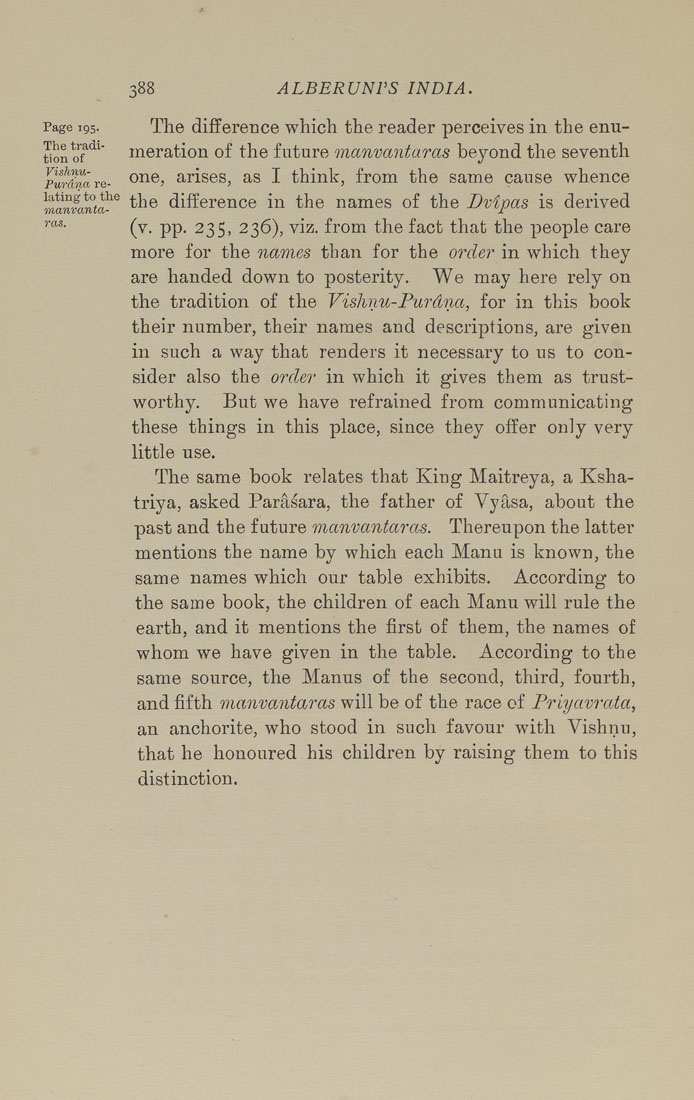Bīrūnī, Muḥammad ibn Aḥmad, Alberuni's India (v. 1)
(London : Kegan Paul, Trench, Trübner & Co., 1910.)
|
||
|
|
|
|
| Page 388 |

388 ALBERUNPS INDIA. Page 195. The difference which the reader perceives in the enu- tion oT*^^' meration of the future manvantaras beyond the seventh Purdna re- ^^^> ariscs, as I think, from the same cause whence ^anvanta^^ the difference in the names of the Dvipas is derived ras. ^y pp_ 225, 236), viz. from the fact that the people care more for the names than for the order in which they are handed down to posterity. We may here rely on the tradition of the Vishnu-Burdna, for in this book their number, their names and descriptions, are given in such a way that renders it necessary to us to con¬ sider also the oirler in which it gives them as trust¬ worthy. But we have refrained from communicating these things in this place, since they offer only very little use. The same book relates that King Maitreya, a Ksha¬ triya, asked Parasara, the father of Vyasa, about the past and the future manvantaras. Thereupon the latter mentions the name by which each Manu is known, the same names which our table exhibits. According to the same book, the children of each Manu will rule the earth, and it mentions the first of them, the names of whom we have given in the table. According to the same source, the Manus of the second, third, fourth, and fifth manvantaras will be of the race of Briyavrata, an anchorite, who stood in such favour with Vishnu, that he honoured his children by raising them to this distinction. |
| Page 388 |







